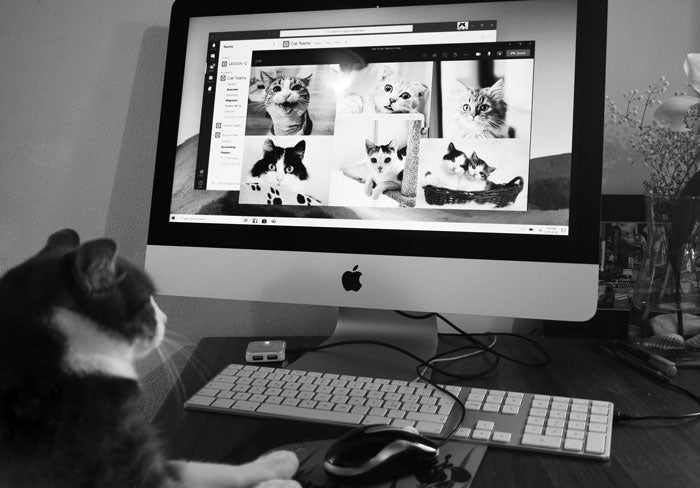In one of my day jobs, I used to regularly meet with farmers. Usually these meetings would take place around a table at the farmer’s house and, if I was lucky, over a cuppa and a scone. It’s normal practice for rural people, where the kitchen or dining room table is also the office table and business meeting table, not to mention the kids’ homework table, hobbies table and sewing table.
This is in contrast with an urban lifestyle, where the family table seldom sees business meetings. Meeting an advisor or consultant, doing an employment interview or working on financial paperwork usually happens in a purpose-built office.
But the pandemic has changed all that. WFH (working from home) has blurred the line between home and office, and urban homes are now becoming mixed-use buildings – part office, part school, part family home. City dwellers now have something in common with farmers – their dining tables are where the business happens.
Pandemic anxiety is messing with the rhythms of life
Having a degree of separation between home life and work life helps to maintain circadian rhythms, like relaxing and sleeping. Rural people do it naturally, because it’s the way things have always been in the countryside. However, having work and home in the same place is a new experience for many urban dwellers.
An article from Propeaq from Jan 2021 notes: “When daily routines are taken away from us, like work and social behaviour, we disturb our biological rhythms. This can result in serious long-term effects, which can be experiences such as jet lag-like insomnia, low energy and mood”.
Lockdowns, and the sudden blend of work and home life they bring, impact on everyone in your household. Adults have to juggle jobs with home-schooling requirements; children find it hard to be quiet when parents are working; and everyone’s inwardly (or outwardly) worrying about what’s going to happen next. Tossing and turning all night, as well as strange covid-flavoured dreams, can result in feeling less-rested. The coronavirus pandemic has led to an insomnia pandemic, so the whole world’s is staring at the ceiling and trying to go to sleep.
My personal downfall is going to bed too late, because I don’t have to get up so early. Ultimately, this just makes it more difficult to sleep and I get over-tired. I’m often more fatigued after a week of WFH than a full week at the office.
How to improve your WFH sleep and avoid lockdown insomnia
So what can you do to protect sleep quality when working from home during lockdown? For most of us, taking up yoga or meditation just isn’t practical when there are pets and children underfoot.
The American Sleep Association suggests: The best way to improve your quality of sleep is to determine why your sleep is disrupted. If you think your lifestyle or environment is having an impact, take steps to improve your sleep hygiene.
- Establish a routine with set sleep and wake times
- Use room darkening curtains to block exterior light
- Try a white noise machine to reduce environmental noise
- Avoid using electronic devices before bed
- Get regular exercise
- Avoid large meals, caffeine and alcohol in the evenings
- Consult your doctor if you think you may have a sleep disorder.
Personally; the best advice I’ve ever been given came from a woman who lived on and managed a large farm for many years. She said: “The bedroom is a haven. It’s a place for you - not the farm, not the business and not the world’s problems. It’s a place for good books, light-blocking curtains and amazing sheets to feel great sleeping in”. I think that works for town and country folk alike.
References:
The COVID-19 pandemic and emotional welfare: Tips for healthy routines and rhythms - Propeaq
https://www.sleepassociation.org/blog-post/comparing-urban-and-rural-sleep-differences

